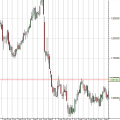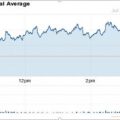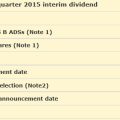7 Basic Tips To Help You Be A Better Investor And Make More Money From The Stock Market
You don’t need to be a genius if you want to be a good investor. Actually, investing is boring and a dummy thing, and everyone can do it! You need to stick to some rules and have some discipline, but it’s not rocket science at all. Here are some basic tips, that can significantly improve the performance of your portfolio. They are so simple and trivial, that many people would ignore them thinking they are too obvious to be true. But they are and can have some substantial effect on your returns.
Don’t forget about the fees!
Investors often don’t pay much attention to fees, but they have to. Fees can be a substantial break for your return on investment, especially in the long run. If you invest a smaller amount of money, fees can reach 1% of each deal and even more. This means you lose this percentage for sure. If you trade actively, fees can add up to a decent amount. One day I decided to calculate all the fees I paid during the year last, they were around $1 345. If I invested this amount every year at 7.5% for 10 years, I would have made $21,799.92 just from my fees (you can calculate this yourself here). It’s calculated, that reducing your fees by just a percentage can increase your return by more than 20% in the long run.
Don’t get overproud by the bull market.
When the market is bullish and you have long positions, watching your earnings grow can muddy your mind. You may start thinking that you are a genius and you may even beat the market for a while. You may think that it’s because your investing skills are great, but it’s not. This can, and in most cases will make you take a larger risk than you can afford and you will end up losing money. Don’t get blinded and know that the market can give, but it also can get from you. Especially is you lose discipline and get overconfident. There are just bull markets, and there are bear markets.
Don’t constantly try to catch all market moves.
Many people try to always invest in the hottest stocks on the market. They have a good analyzed position and it’s not moving much. They see a stock going through the roof and they decide that they don’t want their carefully judged position anymore. They want the rocket. So, what they do it to close their ‘good’ position and buy the sharply rising stock. Although this may turn out to be profitable sometimes, this is not the right thing to do if you are an investor (not a trader). You should pick your position carefully and stick to them. Nobody can predict exactly which stock will go up and which will go down. Changing your position too frequently not only will increase the cost of your investments, but also you will avoid reaping the profits from your carefully planned holdings. Investing is a marathon, not a quick run.
Don’t buy a stock just because you want to buy it!
Sometimes you have some free cash and you don’t have a clear plan of what to do with it. The market is bullish and you decide to buy something, just because you need to buy something. You don’t even devote any time to have a look at the financial report of the company, you know you like it, it’s going up and you buy it. But this is not the right strategy, because if you don’t have a sound and profitable reason to be in a position, you have taken the wrong position. Impulsive investing can make some profits for you sometimes, but this is just not the right thing to do, is you want to be serious, not just play with your hard-earned money.
Don’t diversify too much
Warren Buffett once said that diversification is for people, who don’t really know what they are doing. If you are a new investor, diversification can help you avoid risking too much, but you should know that diversification can help you avoid earning much, too much. It works on both sides – limits your market risk, but also limits your potential earnings as well. If you invest a smaller amount of money, diversification can even be bad for you. Imagine you have $3 000 to invest and you buy stocks of 30 different companies with the money, just to be diversified well. That’s a craze because this way your average position will be around $100, which means you will pay really big fees as a percentage of each position and your portfolio as a whole. If you need to be so well diversified, you can buy an index fund.
Remember that market can go down as well
After a long period of earnings, investors tend to forget that the market can do down… sometimes significantly. If you are really long-term investor, this should not scare you much, but if you plan to use the money you invest for anything else, know that when invested, their value is relative.
Be aware of salesmen
There is a specific type of investment gurus, which are not investors at all, but really good salesmen. Have you watched the “Wolf of Wall Street” movie? It’s a nice film on the matter. These people can be really persuasive, they will promise you amazing returns in no time and anything like that. This way you can find yourself in a situation in which you are heavily invested in a poor stock and you will not even know why the heck you have it. Such investment decisions can be devastating for your portfolio, be careful.
Some Additional Things To Consider
Investing can seem like a difficult and intimidating process for the average person, but it doesn’t have to be. With the right strategy, time, and knowledge, even novice investors can be successful. Here are a few tips to help make you a better investor.
- Start by Educating Yourself: Before jumping into the world of investing, it’s important to be educated on the basics. Research the different types of investment vehicles, understand the risks associated with investing, and know your own financial goals. A good place to start is reading up on publicly available investment strategies such as index investing, value investing, and growth investing.
- Create an Investment Strategy: Setting clear, achievable goals is an important part of being a successful investor. Consider what type of investment vehicles you want to invest in and how much risk you are willing to take. Then, develop an investment plan that will meet your goals and is appropriate for your time horizon and risk tolerance.
- Diversify Your Portfolio: Diversification is one of the most important strategies for reducing risk in your investments. By spreading your investments across a variety of different asset classes and investment vehicles, you’ll reduce your overall risk and increase the chances of growing your wealth more steadily over time.
- Monitor Your Investments: After creating a well-diversified portfolio, it’s important to keep track of your investments and monitor potential changes in the markets. This will help you identify any potential opportunities to make adjustments and optimize your portfolio over time.
- Know When to Get Professional Advice: It’s understandable if you don’t have the time or expertise to manage your investments yourself. If this is the case, it’s essential to reach out to a credible financial professional to help guide you.
By following these simple steps, you can become a better investor and achieve long-term success with your investments. Keep in mind that investing is a marathon, not a sprint, and it’s important to have patience and be disciplined when it comes to managing your investments. Good luck!
If you think these tips are cool, please, share them with friends on your best social site. Thanks!






